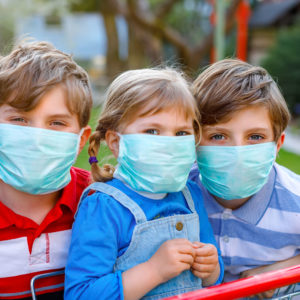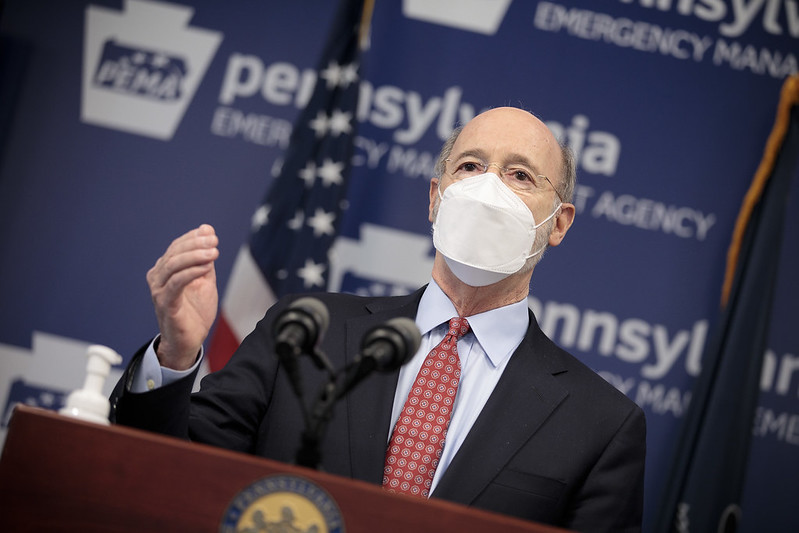Are Masks Helping or Hurting Our Children?

With the back and forth from the CDC on which masks are truly helpful in slowing the spread of the COVID-19 virus, it’s easy to worry about the safety of our children. Pennsylvania has 500 school districts, and some still require students to wear their masks indoors while others move to make masks optional.
Some fear that continued masking mandates might spark mental health conditions for students. Still, Inna Leiter, Psy.D., child and adolescent psychologist and director of the Center for Cognitive Behavioral Therapy told Delaware Valley Journal that isn’t necessarily the case.
Inna Leiter
“I think that since we’ve had to start masking we have undoubtedly seen an increase in anxiety,” Leiter said. “But so many other changes have come along with that, including parents being more stressed and intermittent quarantines, that it’s really hard to point to a causal relationship between masking and any specific mental health issues.”
Leiter mentions many contributing factors are causing students stress and anxiety during the pandemic. One is the uncertainty surrounding guidelines.
“What I have seen anxiety about specifically in my clinical practice is that it’s really unclear what the guidelines are regarding safety and how to apply them consistently,” Leiter said. “Some parents are more strict, some parents are less strict, and so sometimes it can cause anxiety in kids trying to fit in if their parents are really strict. If they’re hanging out with their friends and their friends aren’t wearing a mask but their mom won’t let them go anywhere unless they’re wearing a mask. Sometimes they’re the only ones wearing a mask. That can cause some stress. I don’t know if that’ll turn into an anxiety disorder but it’s just an added social stressor of navigating when to wear the mask.”
Nicole Lombardi, the owner of Speech Matters, LLC, told DVJ it is also difficult to say if masks harm children’s ability to speak.
“While we cannot say definitively whether masks are inhibiting kids from learning to talk, we can absolutely see some negative impacts of masking,” Lombardi said. “Masking makes it difficult for our little ones acquiring language to see our faces, so they’re limited to only hearing sounds and words, which sometimes isn’t enough in isolation. Additionally, masking has impacted not only young ones learning language but also those who have already acquired language and are addressing the nuances of language in everyday communications.”
Nicole Lombardi
In addition to language skills, Lombardi has noticed masking impacts children’s social skills.
“Masking has negatively impacted children addressing social skills due to the inability to read a person’s facial expressions and nonverbal cues,” Lombardi explained. “Do I have a valid answer to this? No. But, I can say that the number of 1-2-year-olds who have joined our Speech Matters community since the implementation of masking has more than doubled from years prior to 2020.”
Lombardi said masking is n0t much of an issue when it comes to older students unless they are already seeing a speech therapist.
“From my purview, I do not see masking for older students learning new terms as an issue,” Lombardi said. “I do see it as an issue for older kids who are (a) working on speech sound production skills (perhaps they make an F for a TH sound, like “bad” for “bath”). As I mentioned, I have seen great impact of masks on older students working on their social language skills, particularly in reading nonverbal social cues (facial expressions are often key to reading a social situation).”
Lombardi added rapport is a big part of therapy in any specialty, and masks can have a negative impact on children building that rapport with their speech therapists.
“Masks make it difficult to feel that you truly know a child, their families and caregivers, and vice versa,” Lombardi said. “It’s not immediately obvious, but it is rather jarring to think that you could show a picture of three women without masks to a child who has been working with one of them for several months and the child would not be able to choose which woman was his or her therapist. It is both sad and concerning, thinking about the impact masks have had on rapport building.”
When asked if there was anything parents could do to help their children, Lombardi’s answer was simple.
“Model, model, model,” she said. “Parents are the face of therapy when with their child in a private and maskless setting. We as therapists will need to rely on you to model speech sounds, language skills, and social interpretation/use of language at home and in the community. While therapists and children can wear clear masks or masks with windows, there is still a barrier to the child’s direct access to facial cues. It is also helpful to monitor your child’s progress at home and report back. Share videos of your child working on their speech and language skills at home, maskless, so therapists are able to see what is occurring behind the mask and provide helpful feedback for practice and improvements.”
It is difficult to say how masks will impact children long-term, and that uncertainty can add to the growing list of stressors for parents and their children.
“Uncertainty is really hard for people,” Leiter said. “For people with anxiety, uncertainty is like an Achilles heel. Uncertainty is the thing that anxiety latches onto. So, in this era of uncertainty, it makes sense that people are struggling with anxiety. Is it caused by masks? I can’t say that but the uncertainty about masks is likely to contribute to the pool of uncertainty that we’re all facing.”
Follow us on social media: Twitter: @DV_Journal or Facebook.com/DelawareValleyJournal




